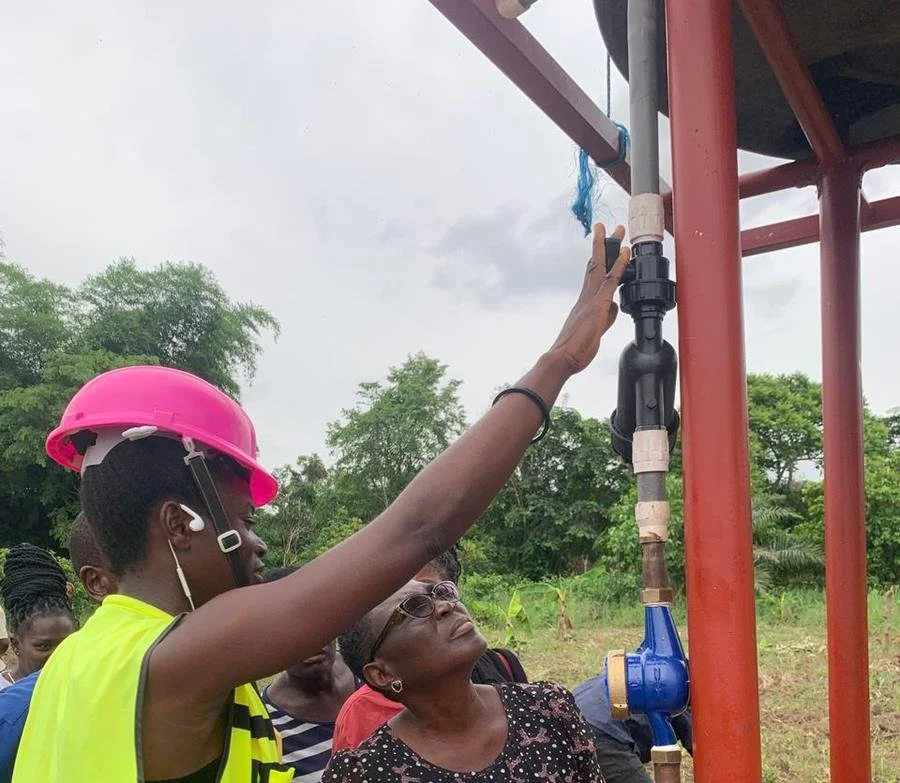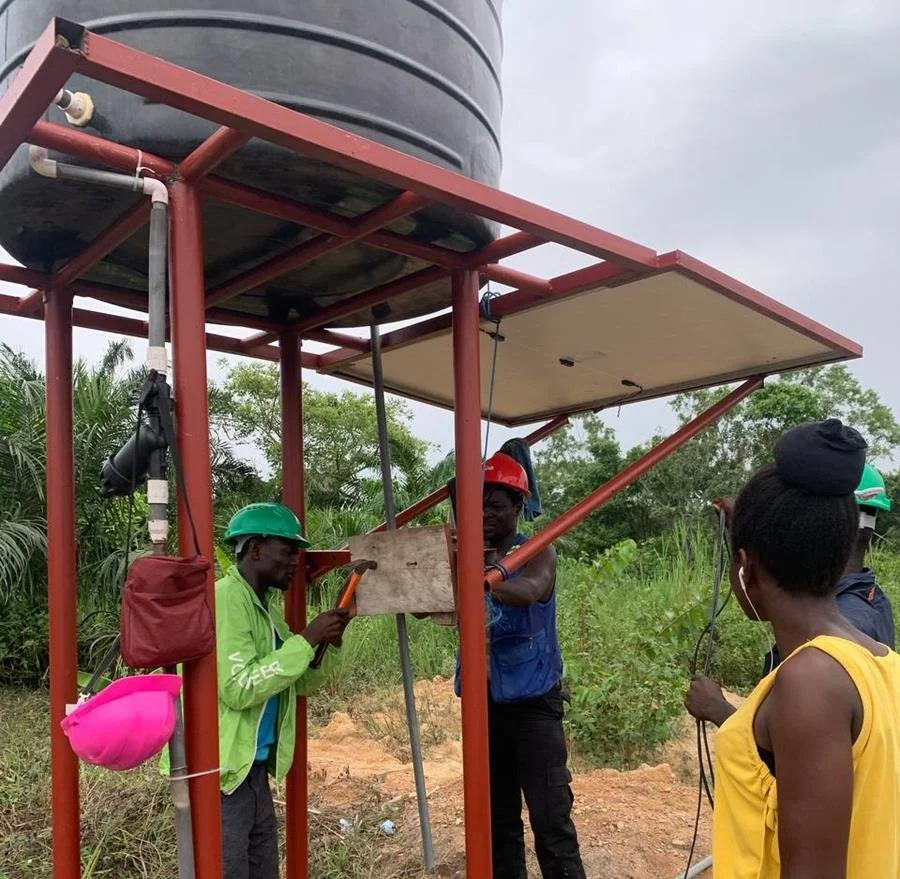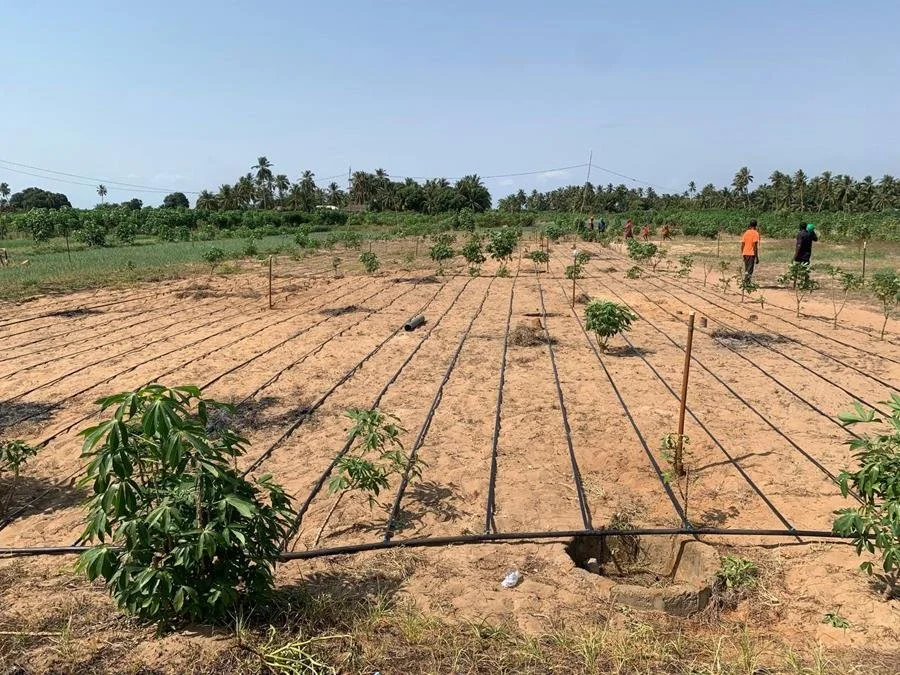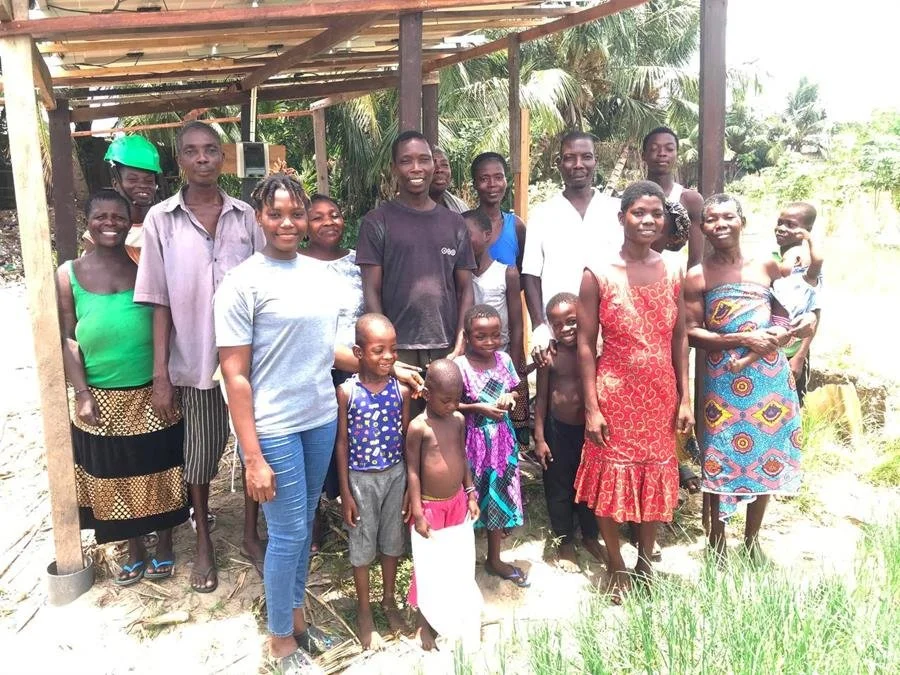July 2024 - 10 life-changing solar irrigation systems installed
Jessica handing over a solar powered irrigation system to a farming family in the South Volta Region of Ghana.
Our solar irrigation project is finished!
10 small-holding farms in rural Ghana now have solar powered irrigation systems. 132 people will directly benefit from these systems and each farming family will save about 400GHs (£28) per month in fuel costs. This is equivalent to one or two weeks of a local wage.
These simple to use systems also increase crop yields and reduce the time required to water crops, ultimately improving the quality of life for the project participants.
In addition to the direct benefit to the farmers and their local communities, these systems also reduce local air pollution and global carbon emissions.
A massive thank you to Next Energy Foundation who funded this project in its entirety.
In other big news...
Our latest campaign with the Big Give was a massive success! We comfortably exceeded our target of £5,000 to provide solar powered lighting and refrigeration for the rural health clinic in Jantuakrom. The installation date for this project is set for Q4 2024.
Thank you so much to everyone who donated to this incredibly impactful project.
Finally, Thank you to all our half marathon runners, who ran and ran and ran through the streets of Hackney 2 weeks ago. Together they raised over £5,000. These funds ensure Dream Renewables can continue to support two young solar engineers, promise and Jenifer.
Solar Powered Irrigation - project introduction
One of 10 solar powered irrigation systems installed for small holding farmers in the Volta Region of Ghana.
We are delighted to announce the completion of 10 solar-powered irrigation systems for subsistence farmers in the Volta Region of Ghana. Solar powered irrigation has a huge potential to transform agriculture across Ghana. it has been identified as a key area for growth by the Ghana Renewable Energy Master Plan, and is supported by major development organisations such as GIZ and SNV. Dream Renewables aim to ensure that no one is left behind with this opportunity and that solar powered irrigation systems are available for those who need them the most. We hope this project will be the first of many.
This project focuses on providing 10 solar powered irrigation systems for subsistence farmers in the South Volta region of Ghana. These systems aim to reduce running costs, water usage and time spent on the farm and increase system reliability and crop yields.
The new solar powered systems replace diesel generators, grid electricity and manual 'bucket and well' irrigation systems. These methods are time-consuming, polluting and unreliable. For example;
There are regular power outages in the area - the last thing farmers want towards the end of tomato season is to have three days without an effective irrigation system, so grid powered systems are risky.
Diesel powered pumps are typically inefficient and produce heavy particulate emissions as well as greenhouse gases.
The traditional method of using manual labour to collect water from wells is very time-consuming and often results in under-watering due to the other stresses of life.
As well as supporting the livelihoods of 10 subsistence farming families, this project is a research project which aims to understand which types of solar-powered irrigation systems are most suited to which types of farms and farmers. Throughout the next year, we will closely monitor the systems and the benefits they can bring. This will inform a second stage of the project scheduled for 2025.
A massive thank you to thanks to Next Energy Foundation who funded this project in entirety.
Training for local farmers.
We trained 14 local farmers on efficient irrigation systems including solar irrigation systems.
We trained 14 local farmers on efficient irrigation systems including solar irrigation systems.
Before the installation, we provided free training for 14 local farmers. The training was mostly 'hands-on' and covered the following topics;
1) Efficient use of current/traditional irrigation systems
2) Alternative irrigation systems available
3) Solar powered irrigation systems
We also provided 'top up' training to the local maintenance technicians, Jessica and Kingdom, who will become part of the Dream Renewables team and earn a monthly wage. They will be responsible for conducting routine maintenance and collecting data for project evaluation purposes.
Installing the systems
Kingdom wiring the MPPT (Max Power Point Tracking) pump controller
Two types of irrigation systems were installed as part of this project:
Drip type: a single solar panel pumps water from the well to a raised water tank. This tank is connected to drip irrigation pipework. All the farmer has to do is open the tap and let gravity do all the work, efficiently distributing water directly to the base of the plants. Drip systems use significantly less water than sprinkler-type systems.
Sprinkler type: the prevalent mechanical irrigation method used in Ghana. Farmers are typically comfortable with these systems, however, there are some clear disadvantages to drip systems. They use more water, increasing the risk of running dry or salt contamination they need more solar panels and are therefore more expensive, and they require more manual hours.
Dream Renewables installed these systems alongside a team of five local technicians who had previously completed our solar power training. Jessica and Kingdom (the maintenance technicians) were also part of the installation team.
We worked with local carpenters and tradespeople to build structures for the solar panels and water tanks.
Our team of experienced and certified solar engineers installed the electrical circuits required, whilst also supervising the junior technicians to develop their skills.
Handing the systems over
Jessica explaining how to use the system to the farmers
After the systems were installed, we spent a day training the farmers on how to use and maintain the systems.
The whole family often came around to see the system working, after looking on intrigued throughout the installation process.
We are so proud of our team for delivering this complex project in a challenging environment.
Some More Photos
Laying the pipework
Constructing the tower
The pipework completed
One of the 10 farming families who will benefit from the system.









